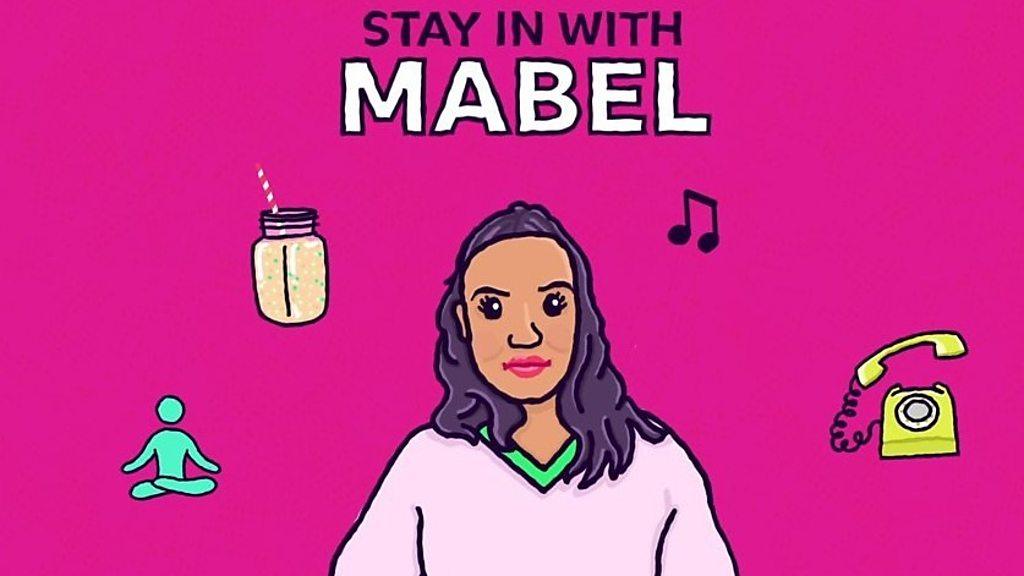Social distancing and social shielding: What's the difference?
- Published
- comments
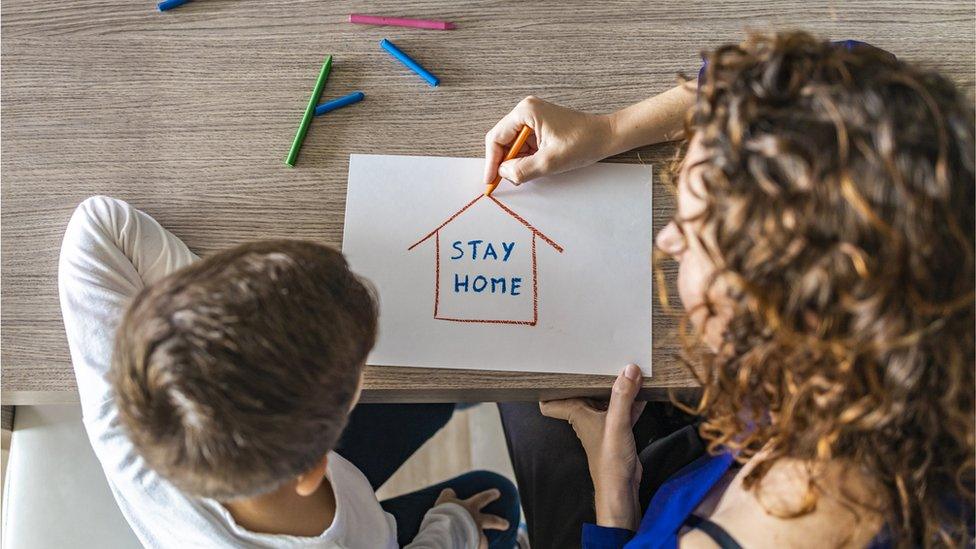
By now everyone is getting used to social distancing and life at home after the government announced a nationwide lockdown last month.
But have you heard of social shielding?
This is a measure to protect vulnerable people with certain health conditions who are at a greater risk of getting very ill if they get coronavirus.
What is social distancing?
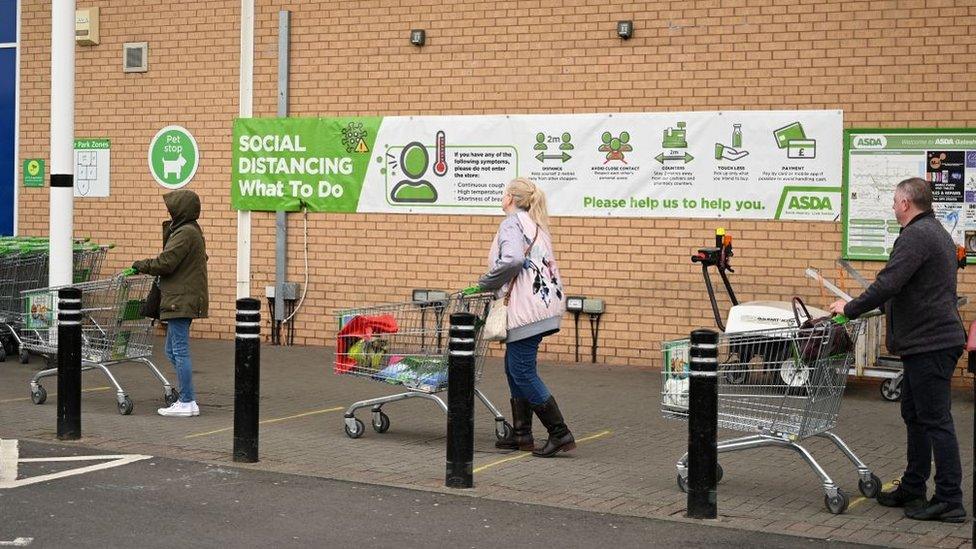
Shoppers queue using social distancing outside a supermarket in England
The government has asked people across the UK to observe social distancing to help limit the spread of coronavirus.
Quite simply, it means making sure there's enough space between people who are well and those who might not be well.
Health experts in the UK say people who don't live in the same household should stay at least two metres apart when in public to help stop the virus spreading, and that nobody should be meeting in groups.
The government's guidelines included closing schools, restaurants and theatres, and a lockdown where people are only allowed to leave their homes for reasons such as going to the supermarket and exercising.
What is social shielding?
Social shielding is a much stricter version where certain people aren't allowed to leave their house at all.
It is to protect people, including children, who are at very high risk of severe illness from coronavirus. It aims to stop them coming into contact with anyone who might have the virus.
Those who are extremely vulnerable should:
not leave their homes for at least 12 weeks
reduce contact with other people in their house
regularly wash their hands
This group includes people with severe asthma and long-term lung conditions.
If you need to shield, then your parents will have received a letter from your doctor letting them know and they will arrange for food and other supplies to be delivered to your house.
And remember, if you are worried or upset by anything you read in the news, you can talk to an adult you trust who will be able to help.
WATCH: Advice if you're upset by the news
- Published25 March 2020
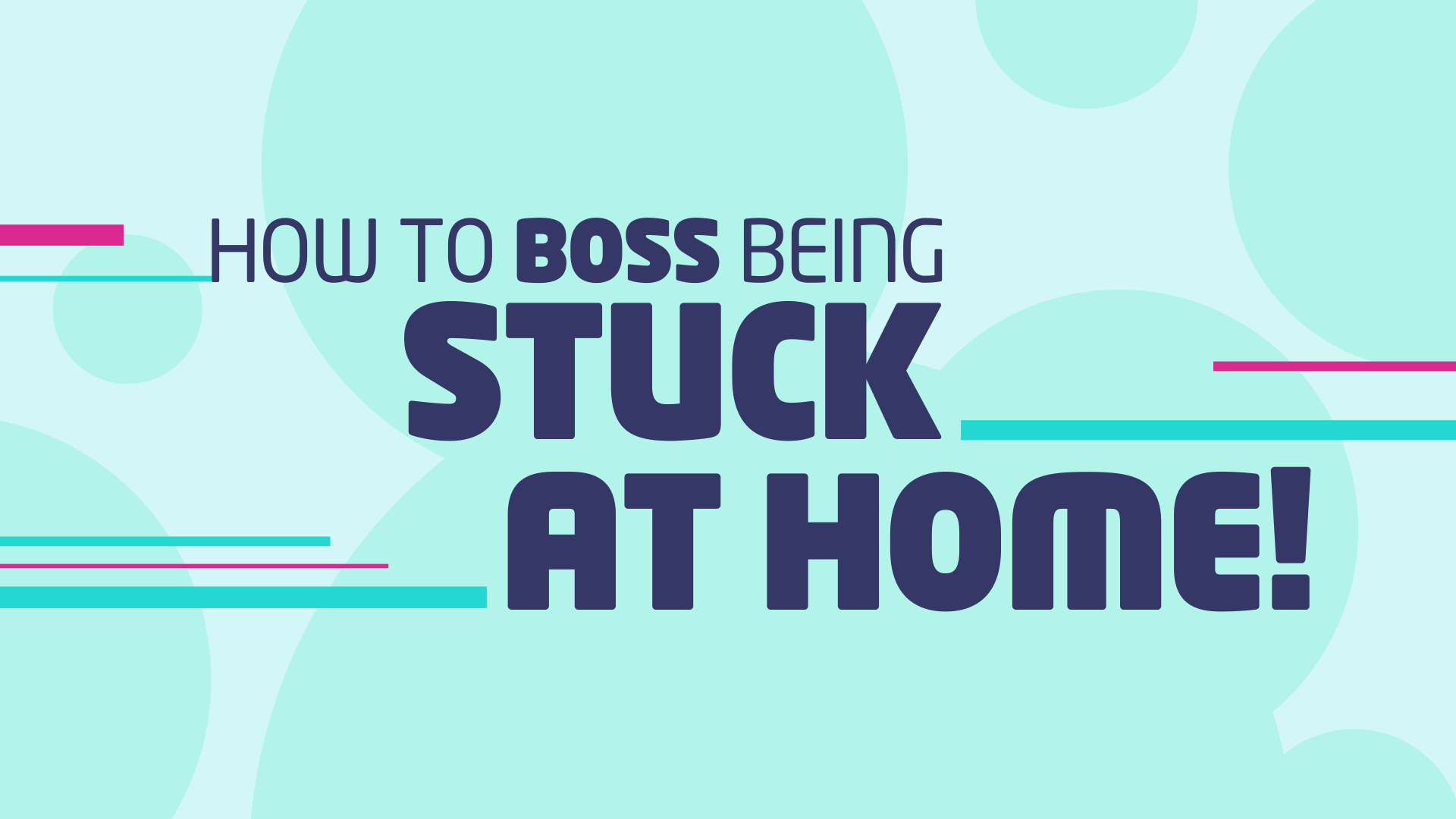
- Published5 January 2021
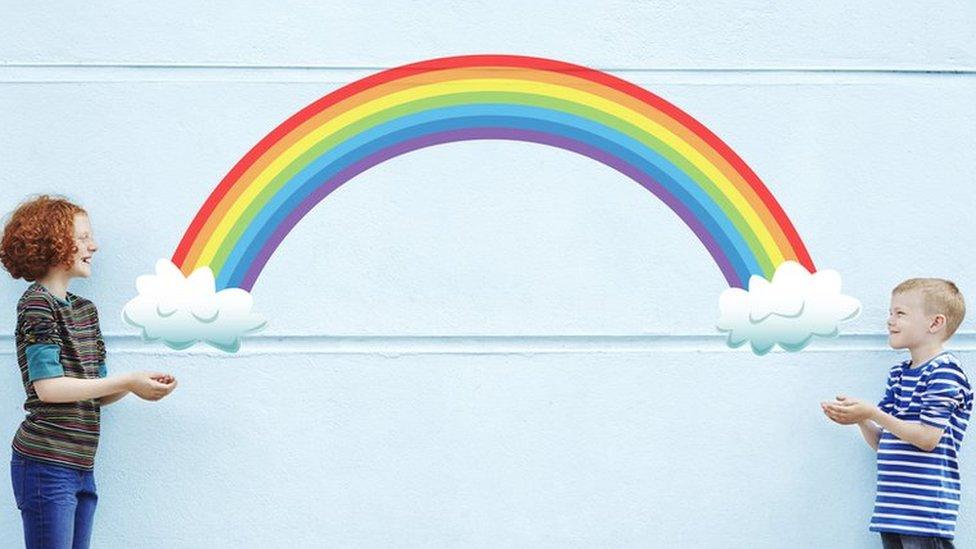
- Published14 April 2020
